Shahnameh
Studies - Vancouver, Canada
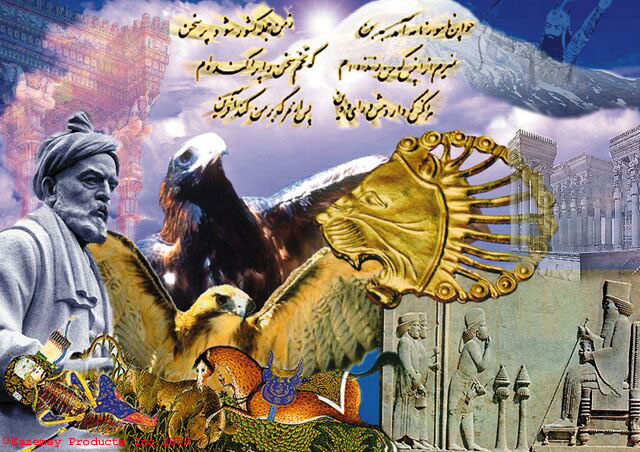
Venue:
Dar-e Mehr Arbab Rostam Guiv, Burnaby, Vancouver
Time:
Every other Thursdays, 7-9 pm
under
supervision of Arbab Rostam Zartoshty
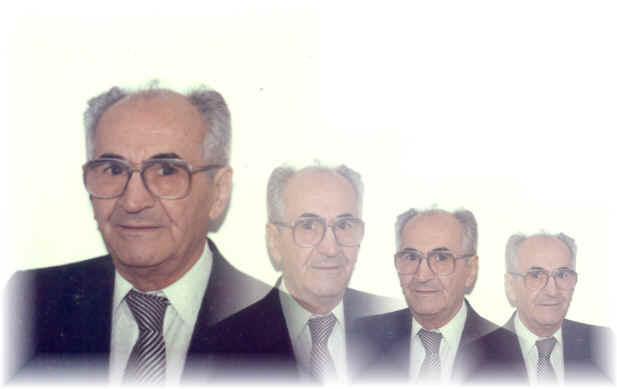
Mr.
Zartoshty
was born in Yazd, 1300 Khorshidi
He
started to study Shahnameh when he was 24
==================================================
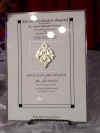
















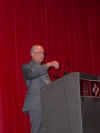





==================================================
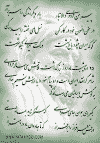









Watch
the Video
==================================================
1064th
Ferdosi's Birthday, Friday 2th Jan 2004
and
Beginning of the 8th year
of Shahnameh
Studies in Vancouver
Dar-e
Mehr Arbab Rostam Guiv, Burnaby 7-9
pm








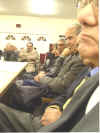
==================================================
1063th
Ferdosi's Birthday, Saturday 4th Jan 2003
and
Beginning of the 7th year
of
Shahnameh
Studies in Vancouver
Darb-e
Mehr Arbab Rostam Guiv, Burnaby
7-9
pm
no.
of attendees: 110+
watch
Video (you
need Quick Player)






Watch
the Video
==================================================
1062th
Ferdosi's Birthday, 4th Jan 2002
and
Beginning of the 6th year
of
Shahnameh
Studies in Vancouver (201st
Study Meeting)
Darb-e
Mehr Arbab Rostam Guiv, Burnaby
no.
of attendees: 80+ fellow Zartoshties





Program included:
-
Introduction
and Welcome by Arbab Rostam Zartoshty
-
Annual report
by Mr. Marzbani the Secretary of the Foundation
-
Lecture on
Rostam's Haft Khans of Ferdosi and its similarity with Molana's
Gnosticism by Mr. Kh. Alghabi
-
Lecture by Dr.
M. Shahrvini on Efforts of Mr. Zartoshty and Birth Dates of Ferdosi
-
Break and
Cutting the Special Cake by Ms. Bella Tata
-
Reading of
Shahnameh Poems on Good Advice by Mr. Rostam Zartoshty
-
Lecture and
Shahnameh Reading by Dr. P. Rostamian on Medical Science in Shahnameh and
Birth of Rostam.
-
Signing
Songs from Shahnameh by Mr. Shahpour Mehrabani
By: Manuchehr Iranpour,
Vancouver, Canada
The Great Ferdowsi
Commemoration of Great Ferdowsi, 25 Ardibehesht (May
14th)
Hakim Abol Qasem Ferdowsi
Tousi
{ Basi ranj bordam dar in saal si (I toiled much in Thirty years)
{ Ajam zende kardam bedin Parsi (And Parsi was resurrected)
Ferdowsi
was born in Khorasan in a village near Tous, in 935 CE His great epic The
Shahnameh (The Epic of Kings), to which he devoted most of his adult life, was
originally composed for the Samanid princes of Khorasan, who were the chief
instigators of the revival of Persian cultural traditions after the Arab
conquest of the seventh century. During Ferdowsi's lifetime this dynasty was
conquered by the Ghaznavid Turks, and there are various stories in medieval
texts describing the lack of interest shown by the new ruler of Khorasan,
Mahmoud of Ghaznavi, in Ferdowsi and his lifework. Ferdowsi is said to have
died around 1020 CE in poverty and embittered by royal neglect, though
confident of his and his poem's ultimate fame.
The Shahnameh or The Epic of Kings is one of the definite classics of the
world. It tells hero tales of ancient Persia. The contents and the poet's
style in describing the events takes the readers back to the ancient times and
makes he/she sense and feel the events. Ferdowsi worked for thirty years to
finish this masterpiece.
Ferdowsi is considered as the greatest Persian poet, author of the Shahnameh
("The Epic of Kings"), the Persian national epic, to which he gave
its final and enduring form, although he based his poem mainly on an earlier
prose version. For nearly a thousand years the Persians have continued to read
and to listen to recitations from his masterwork in which the Persian national
epic found its final and enduring form. It is the history of Iran's glorious
past, preserved for all time in sonorous and majestic verse. Though written
about 1,000 years ago, this work is as intelligible to the average, modern
Iranian as the King James version of the Bible is to a modern English-speaker.
The language, based as the poem is on a Pahlavi original, is pure Persian with
only the slightest admixture of Arabic.
According to Nezami, Ferdowsi was a dehqan (landowner), deriving a comfortable
income from his estates. He had only one child, a daughter, and it was to
provide her with a dowry that he set his hand to the task that was to occupy
him for more than 30 years.
The Shahnameh of Ferdowsi, a poem of nearly 60,000 couplets, is based mainly
on a prose work of the same name compiled in the poet's early manhood in his
native Tus. This prose Shahnameh was in turn and for the most part the
translation of a Pahlavi (Middle Persian) work, the Khvatay-namak, a history
of the kings of Persia from mythical times down to the reign of Khosrow II
(590-628 CE), but it also contained additional material continuing the story
to the overthrow of the Sasanians by the Arabs in the middle of the 7th
century A.D. The first to undertake the versification of this chronicle of
pre-Islamic and legendary Persia was Daqiqi, a poet at the court of the
Samanids, who came to a violent end after completing only 1,000 verses. These
verses, which deal with the rise of the prophet Zoroaster, were afterward
incorporated by Ferdowsi, with due acknowledgements, in his own poem.
An important feature of this work is that during the period that Arabic
language was known as the main language of science and literature, Ferdowsi
used only Persian in his masterpiece. As Ferdowsi himself says "Persian
language is revived by this work".
The Shahnameh, finally completed in 1010 CE, was presented to the celebrated
sultan Mahmoud of Ghaznavid, who by that time had made himself master of
Ferdowsi's homeland, Khurasan. Information on the relations between poet and
patron is largely legendary. According to Nezami, Ferdowsi came to Ghazna in
person and through the good offices of the minister Ahmad-ebn-Hasan Meymandi
was able to secure the Sultan's acceptance of the poem. Unfortunately, Mahmoud
then consulted certain enemies of the minister as to the poet's reward. They
suggested that Ferdowsi should be given 50,000 dirhams, and even this, they
said, was too much, in view of his heretical Shi'ite tenets. Mahmoud, a
bigoted Sunnite, was influenced by their words, and in the end Ferdowsi
received only 20,000 dirhams. Bitterly disappointed, he went to the bath and,
on coming out, bought a draft of foqa' (a kind of beer) and divided the whole
of the money between the bath attendant and the seller of foqa'.
Fearing the Sultan's wrath, he fled first to Herat, where he was in
hiding for six months, and then, by way of his native Tus, to Mazanderan,
where he found refuge at the court of the Sepahbad Shahreyar, whose family
claimed descent from the last of the Sasanians.
There Ferdowsi composed a satire of 100 verses on Sultan Mahmoud that he
inserted in the preface of the Shah-nameh and read it to Shahreyar, at the
same time offering to dedicate the poem to him, as a descendant of the ancient
kings of Persia, instead of to Mahmoud. Shahreyar, however, persuaded him to
leave the dedication to Mahmoud, bought the satire from him for 1000 dirhams a
verse, and had it expunged from the poem. The whole text of this satire,
bearing every mark of authenticity, has survived to the present.
According to the narrative of Nezami, Ferdowsi died inopportunely just
as Sultan Mahmoud had determined to make amends for his shabby treatment of
the poet by sending him 60,000 dinars' worth of indigo. Nezami does not
mention the date of Ferdowsi's death. The earliest date given by later
authorities is 1020 and the latest 1026 CE; it is certain that he lived to be
more than 80.


